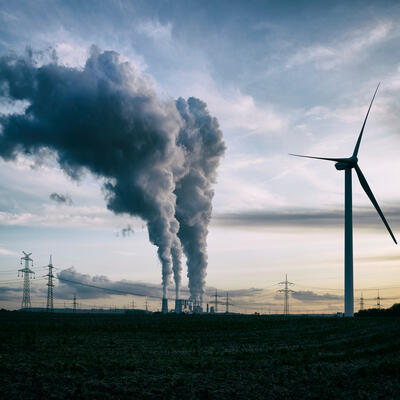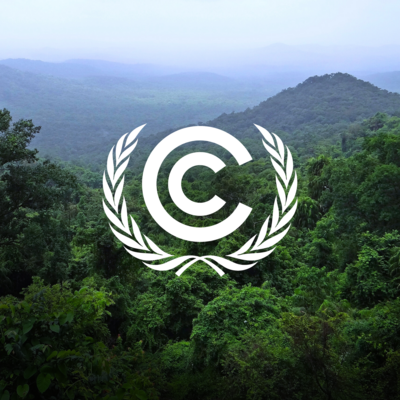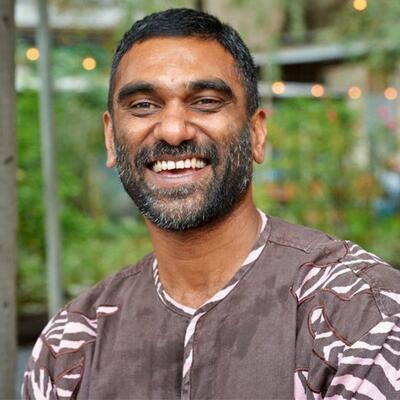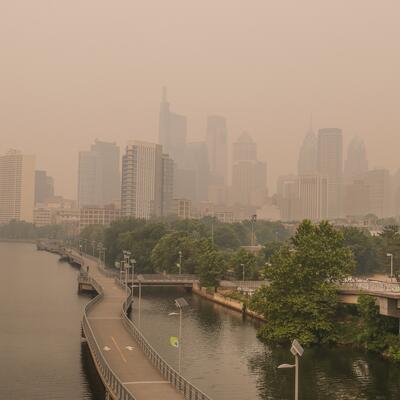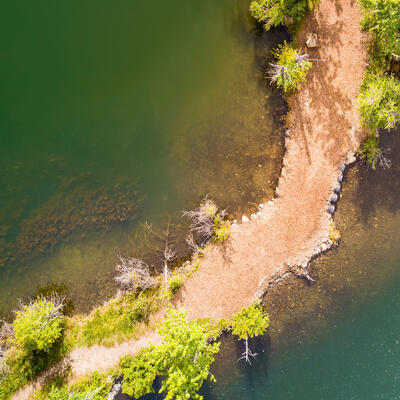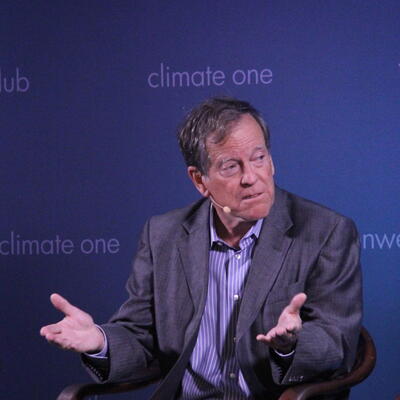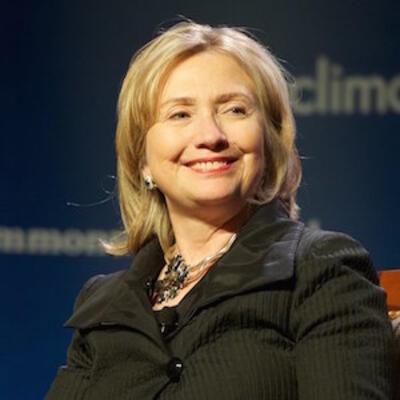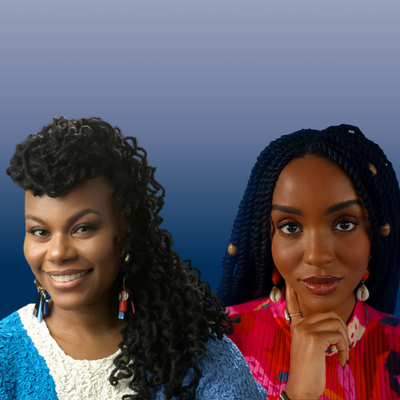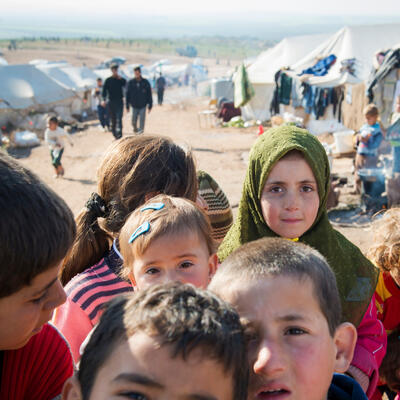
Ukraine and the Middle East: Climate Action in Conflict Zones
Guests
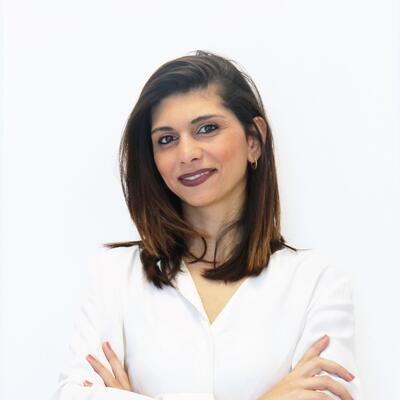
Nada Majdalani
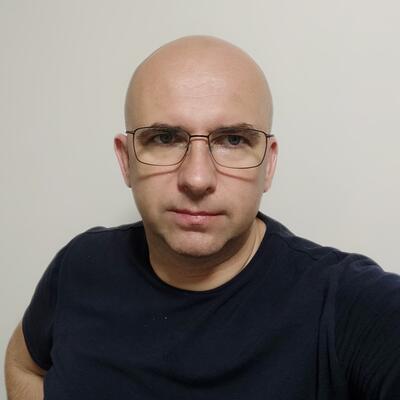
Roman Zinchenko
Summary
Climate is often called a “threat multiplier,” because it can worsen already challenging situations. In places experiencing ongoing armed conflict, such as Ukraine, how do those working to address the climate crisis keep moving forward?
“Practical action is something you can use to calm the fear, to calm the uncertainty,” says Roman Zinchenko, co-founder of Greencubator, an organization focused on sustainable entrepreneurship, the green economy and low-carbon innovations in Ukraine and Eastern Europe.
Russia’s invasion of Ukraine has caused horrific damage and casualties, in spite of Ukraine’s remarkable efforts to defend itself. The conflict has disrupted energy markets, grain shipments and is still destabilizing the global economy. All of this has shoved climate further down the list of international priorities, as has happened so many times before.
Yet Zinchenko says there are multiple fronts on which to fight.
“We have different front which is the front of economy, the front of business. The front of education where we are serving.”
His organization donated photovoltaic equipment to those fighting on the front lines, while continuing its work with renewable energy entrepreneurs, including supporting efforts to decentralize energy production and storage – all of which can help make Ukraine more resilient to climate and war in the future.
“The world was stifling a lot of innovations in the energy field motivated by cheap Russian gas. So, now it's no longer cheap and it costs a lot for everybody,” he says.
Russia’s invasion of Ukraine has dominated headlines for most of this year, but many parts of the world have seen sustained armed conflict for decades. Nada Majdalani is a Palestinian whose whole life has been shaped by perennial conflict in the Middle East. She grew up moving around the region with her family. They returned to Palenstine when she was 11, following the signing of the Oslo Accords, a major milestone in the peace process.
“I remember crossing back from Jordan to Palestine with a truck full of boxes and memories from all the places that my parents were living at and we were moving around. So, to just come back and settle down and call somewhere home and eventually I'm home it's something that is unexplainable…It was an amazing moment,” she says.
Majdalani is now is the Palestinian Director of EcoPeace Middle East, a collaboration of Jordanian, Palestinian and Israeli environmentalists working together on water security, regional integration and sustainable solutions. One of their climate strategies, called the “Green Blue Deal,” advocates for sustainable development in the Jordan River Valley, in part by creating a water and renewable energy exchange between the three countries.
Another strategy focuses on education and creating “agents of change,” particularly with young people.
“Environmental issues, climate insecurity is linked much to water insecurity which, in our part of the world, is also connected to the conflict, specifically for Palestinians,” she says. “And this cannot basically lead to a healthy future and sustainable future for all people in the region. She says when speaking to students and stakeholders, “we try to make them understand that our destinies are very much connected. If pollution happens on one side, the other side is not immune. If water insecurity is on one side, it means that your neighbor is not happy, your neighbor is suffering of lack of opportunities and frustration.”
She says her group tries to view climate disruption as an opportunity multiplier, rather than threat multiplier, driving people from different camps to work for their mutual benefit. In spite of the challenges of working in a region still mired in conflict, she says the climate emergency requires action.
"We are committed because if people like us give up, who else would do the job? Who else would keep the light of hope going?”
Resources From This Episode (2)
Full Transcript
Greg Dalton: This is Climate One, I’m Greg Dalton. Russia’s invasion of Ukraine has caused horrific damage and casualties, in spite of Ukraine’s heroic efforts to defend itself. The conflict has disrupted energy markets, grain shipments and is still impacting the global economy. All of this shoved climate further down the list of international priorities, as has happened so many times before. Yet within conflict zones, many brave individuals and organizations work every day to stave off the even greater threat of climate catastrophe. Today we talk with two guests about the realities of operating environmental organizations in conflict zones, and how to balance immediate needs with working toward a better future.
Roman Zinchenko is co-founder of Greencubator, an organization focused on sustainable entrepreneurship, the green economy and low-carbon innovations in Ukraine and Eastern Europe. For the last few months, Roman has been commuting between Ukraine’s capital of Kyiv and his family’s home city. I asked him to tell us a bit about his daily life in the middle of an ongoing war.
Roman Zinchenko: So, I'm lucky that all the lives in our family, everybody's fine. We have no properties destroyed. We do have the friends serving in the army now. We do have friends and partners who were either wounded or killed during the fights. And we are getting the information firsthand and that's eye-opening. So, first, it’s shocking, then like from my perspective from my experience, it's a kind of tremor and maybe panic. And then you are starting to act because in my case, the practical action is something you can use to calm the fear, to calm the uncertainty. So, we saw millions of people leaving the country. We helped many of them. One of our projects was building a shelter for the mothers with kids that were going overseas. And also, we have different front which is the front of economy, the front of business. The front of education where we are serving. But the interesting point here is how people are focusing some of their efforts on the activities they are doing to support the country to support the Ukraine’s defenders in the front lines to how they volunteer etc. On another hand, I had the chance to see some return of the let’s say “normal life” to the some of the cities that heard rockets shelling and artillery shelling and now they look really peaceful. But when you are entering the city by car you see a range of warehouses and homes burnt down and armored vehicles still on the sides of the road that were destroyed after the Russian invasion started. So, the country has its shocks and the war is a terrible thing. And we lost a lot of brilliant people. We lost a lot of our heritage. We lost a lot of our economy. On the other hand, it shows how adaptable we are and how we are able to reinvent the way of living under a tough situation.
Greg Dalton: I’m just curious what it’s like operating an environmental organization in a conflict zone where you’re hearing from friends who are on the front lines and trying to balance those two things.
Roman Zinchenko: Well, you’re just getting several new layers of the picture of the world. And you are adding some new layers of activities and slashing the redundancies. So, in our case we donated all our PV modules we had in our offices to the need for the military. We started the foundation to provide assistance for the defenders of Ukraine. We made sure all our friends we know who are serving in the Army now they’re getting the protection, the communication equipment and support they need because, well, Ukraine had to grew the Army more than a triple fold starting the Russian invasion. And at some point, you understand that you still have your job and your front to fight and this is the front of serving green economy. So, we almost restored all our programs that were operational before the full-scale Russian invasion. And of course, we had a lot of dual lives; we are living dual lives. So, I'm the project manager in the foundation and I'm the project leader in Greencubator and also, I’m a father and a friend and a son. So, a lot of these roles are now have some a lot of nuances added, etc.
Greg Dalton: It's an interesting juxtaposition of time frames, you know, sending solar equipment to the frontline troops and the immediate fighting needs of today and building companies and technologies and giving funds to entrepreneurs who are trying to build something in a longer timeframe in the peaceful areas. How do you compare adapting to war to adapting to climate change, those things that operate on different time scales and have a different human face?
Roman Zinchenko: I think there is a real danger in terms of climate change that it's not so visible. So, still some people managed to deny the war. Still some people in Russia and not just in Russia, saying, there is no war, they're just special operation. The climate change is crawling but you can't hear in the morning that the rockets are hitting your city. Yes, so with the climate change sure, there are some wildfires in the forests. There are some deforestation losses of nature diversity losses of land fertility, and many other challenges. But the danger of the climate change it comes slowly and it creeps in until someday you just see that your land is no longer fertile without irrigation and you just cannot ensure irrigation on this land because the water levels in the rivers were lost. So, the war is loud. The climate change not always. But on the other hand, well we had eight years of the war invisible war before that after Russia, annexation of Crimea. So, the impact of climate change may be harder to see and harder to hit the front lines of the media, but that's why we should work on that too. Because from the environmental damage perspective, not just Ukraine but the world was hit immensely hard and the environmental losses of this Russian invasion are huge. The fires, the spillover of toxic chemicals. The burnt oil depots, the explosives that are now laying in our fields and our forests. So, there's a lot of environmental damage.
Greg Dalton: Right. And people don't often think about war and cancer. Though the U.S. Congress recently passed some funding for veterans of American troops who have high incidences of cancer, in part because of the burn pits that the military uses to burn many of their equipment, etc. and people get cancer long after they’ve been serving in the military. Well, let’s connect the war with energy. How is the war connected with climate and how does Russia view renewable energy?
Roman Zinchenko: Well, there is a very interesting document of the Russian national security strategy. If I’m not mistaken, it was adopted in the spring 2015 which directly quotes the proliferation of renewable energy, new energy sources and energy efficiency as a direct threat to Russian national security. And the current war Russia started against Ukraine is clearly fossil funded. So, even with the current sanctions, even with the Russia choking the large parts of Europe with the shrinking gas supplies. For example, on the Finnish border they just started to burn the huge amount of natural gas they were pumping to Finland and some other European customers and you imagine the level of CO2 from the huge fires. The current invasion is fossil funded and it's funded through building the energy dictatorship. So, Russia had been working tirelessly over the decades to build that energy grip and they continue doing that. They continue doing that, not just through the gas but they also keep continuing it through the nuclear and they are now very active promoting the nuclear technologies and nuclear power stations for many countries, including the countries of Africa which would tie them for decades to the Russian technology, the source of nuclear fuel and other things. The strange story actually is Ukrainian oil and gas fields were the starting point right after the World War II that the first fueling the large parts of the Soviet Union and now we are a large transit player in terms of supplying Russian gas from Siberian oil and gas fields to Europe. And Russia undermined all of the diversification efforts. Russia undermined all of the energy efficiency efforts, and it was paid handsomely for all the rockets hitting Ukrainian cities now for their oil and gas. So, that's clearly the war of the energy dictatorship because we can clearly say that Russia is the energy dictatorship. On one hand, and that's clearly the war of the old energy technology against new energy technology and against the market approaches, etc. We are paying the big price, the tragic price for the world to see that to witness that to understand that. We are paying the price of the thousands and thousands of lives lost and cities and villages razed from the earth. But still, we are hoping, we are a resilient country. We have resilient communities. And I think that this period would be also a huge push towards the new opportunities for Ukraine as the player in the energy field, as the player in sustainability field and as a player also in the business field.
Greg Dalton: Today we’re focused on the challenges of working toward climate action in conflict zones. Let’s return to my conversation with Roman Zinchenko, co-founder of Greencubator, an organization focused on sustainable entrepreneurship and innovation in Ukraine and Eastern Europe. Prior to Russia’s invasion in February, Ukraine was connected to the Russian electric grid. Roman says the invasion and resulting disconnection of the two country’s grids forced Ukraine to accelerate its plan to join the European energy market.
Roman Zinchenko: And now we are synchronized with the European energy grid. We are one of the exporters there because we have energy proficit at the moment due to the Russian invasion, we have lost a lot of industrial capacities in the East and in the South so many of them were destroyed and some of them were shutdown. The economic activity is now rebounding but still you know if you're losing the steel plant it’s a huge consumer of the energy. So, we have energy proficit now and Ukraine is exporting some of the energy to European Union also to Moldova. And I do hope that we will be benefiting in terms of grid innovations including the energy storage system. Our Parliament has recently passed a new law allowing the energy storage systems to be integrated in the grid, including for example biogas integration into natural gas distribution grids and some other activities. And also, Ukraine is very actively discussing the green hydrogen partnerships with the European Union countries. The challenge is that some of these projects were planned in the southern parts of Ukraine and some of these parts are now occupied by the Russian troops. But luckily the part of Odessa region where the sun is immensely generous and rich. They have the potential so this is a free land and they have the potential for this project development. So, this is a lot of work and I should say that the people in Ukraine's energy sector, they are super resilient and I'm extremely proud of their sometimes life risking effort to keep the country with the power to keep the lights on and to restore what was destroyed during the fighting.
Greg Dalton: So, it sounds like since World War II Russia cultivated Ukraine's dependence on Russian sources of energy, squashed innovations, squashed efficiency. And Ukraine adapted pretty quickly in connecting its electric grid to Europe, cutting it off from Russia. Now, Ukraine has a surplus of electricity because factories are not operating and you’re moving at least in an energy sense closer to Europe, which is supposedly what this war was supposedly to prevent in the first place. Is distributed energy more resilient? We saw Russian forces attacking a Ukrainian nuclear plant. Are you now much more resilient and adaptive because you’re more decentralized?
Roman Zinchenko: Well, the decentralized energy system is yet to be built in Ukraine but I'm really proud that my cofounder and brother Andriy has invested a lot of his efforts, and significant part of his life into making the decentralized energy system happen. So, one of the Greencubator’s spinoffs the project which is called Solar Town is the municipal solar energy cooperative in the city of Slavutych. Slavutych is Ukraine's youngest city; it was built to replace Pripyat after Chernobyl nuclear disaster. And this is the city built for nuclear engineers that were running Chernobyl nuclear power plant after the explosion in 1986. Slavutych was occupied for some time and there was also a loss of power, the loss of electricity grid. So, the energy corp., which is 250 kW solar power station was an important backup power for the community of the cities and they were able to use some of the energy to power the communications to get some life needed energy. Luckily the city is practically intact and there was no big fighting there, so it's now a free part of Ukraine. But we saw it. On the other hand, there is now increasing movement of the Ukrainian home solar owners to convert them from the grid to connect them from the network stations working in sync with grid with the hybrid stations. And they are preparing maybe for hard winter because that winter would be really tough for Ukrainian energy system including the heat supply and we are allowing to a large extent to decentralized the heat supply in our cities. And the people are installing a lot of energy storage and they are making sure that their solar production would be working independently if the grid is on or if grid is off.
Greg Dalton: Is that storage on the individual home level and how are people, how was that funded?
Roman Zinchenko: Well, it's self-funded. The feed-in tariff in Ukraine was pretty attractive model for the renewable generation stimulation. It was tied to the hard currency, it was pretty high. So, a lot of people were installing solar systems at their homes as an alternative investment model. And the payback periods for the home solar was around 6 to 7 years which is nice.
Greg Dalton: That’s pretty good, yeah.
Roman Zinchenko: Yeah. So, the prices were high. The problem is currently the government policy is not providing that support any longer. But there is another model. We are witnessing the energy prices hikes and a lot of large businesses are considering to have their own solar arrays solar station to compensate part of their consumption. And there are pretty large installations on the logistic centers, supermarkets, etc. But the war is not the best time for making these investments. But before the full-scale invasion that was the really important trend. We have also another trend there’s lot of ideas voiced regarding the green recovery and the green recovery plan of Ukraine for rebuilding the cities and homes that were destroyed.
Greg Dalton: Yeah, and we’ve seen that in other places that are then hit by hurricanes. Haiti had a recovery of their electric system that was more distributed in solar and it's interesting to watch that. Pulling back what lesson should the world take from witnessing Russia's invasion of Ukraine as it relates to energy. What's the energy lesson of the story?
Roman Zinchenko: Well, the first energy lesson in this case is stifling the innovation for the sake of your future enemy is a bad strategy. And we should be honest, the world was stifling a lot of innovations in the energy field motivated by cheap Russian gas. So, now it's no longer cheap and it costs a lot for everybody. This is the first thing. The second very practical thing is Si vis pacem, para bellum. So, you should be prepared for the fight. And what is saving Ukraine now we had this fight for eight years since the Russian annexation of Crimea we had hidden but active war and a lot of Ukrainian defenders learned how to work in that. And thirdly, yes, invest in the resilient energy systems that are stress tested that can provide at least the basic needs in case of a major hits in case of major attacks in case of cyber-attacks or just physical destruction by kinetic or other weapons. So, resiliency is really important and resiliency of energy systems is uber important because, well, we do not sometimes understand that this basic convenience is very fragile.
Greg Dalton: Right. And I saw that this month the US Department of Energy sent $30 million in emergency funds to advance both the integration of the Ukrainian grid with Europe and also to address those cyber and physical security things you're talking about. How is the idea of energy independence tied to your idea of personal freedom and freedom from Russia's energy dictatorship?
Roman Zinchenko: That was actually the core idea in Greencubator’s creation 13 years ago. So, my dad, who's a history professor, my brother Andriy and me were just saving money. During the crisis of 2008 where we lost our businesses, jobs and what we were doing we’re doing installation of the heating systems and electricity by ourselves. My dad's first diploma is electrical engineering. Second is math and third is history. So, he had some training and we were doing it with also, with some basic experience. And we faced the really significant challenge that was the challenge of connecting this single-family home, they’re like a country home, to the grid. And it took extra effort to avoid any bribes on getting that place connected. So, from that we understood, oh, there is some pain point for the country. Later we learned that there is also huge pain point for the businesses that are facing significant challenges getting access to the electricity to run their business and to pay for their electricity. And that wasn't the most transparent practices and corruption free practices in this market. So, that was actually one of the sources where idea for Greencubator arrived. Another source was actually Crimea. We were doing the small consulting project in the city of Sebastopol and we were surprised how such sun-rich land is not using the renewables they should have been using. And they were heating the water in the hotels with electricity while they could easily put the solar heaters on their roofs. So, that was another source of inspiration. So, at some point we just came with idea of Greencubator being the source of prosperity, new business idea partnerships for the green businesses of Ukraine. And now we are doing and we are serving the troop. My brother is helping to launch energy cooperatives. I'm focusing more on the broader spectrum of sustainability minded entrepreneurs, but some point was probably 2015 we also hold the conference named “Energy Democracy Against Energy Dictatorship.” Ukrainians as both many individuals and many institutions have been warning that the energy dictatorship would hit someday and the Nordstream second was one of that big warning, but the world preferred to keep that gas pipeline being built until the invasion hit.
Greg Dalton: Well, Roman, thank you so much for sharing your story and your time. And I’m loss of words for what you're going through and balancing during the Russian invasion to try to build a cleaner, more independent future for your country and your family. Thank you so much.
Roman Zinchenko: Thank you very much for having me here and also thank you very much for you and all your team for raising the new generation of climate innovators, climate entrepreneurs and climate-minded thinkers.
Greg Dalton: Russia’s invasion of Ukraine has dominated headlines for most of this year, but many parts of the world have seen sustained armed conflict for decades. Nada Majdalani is a Palistinian whose whole life has been shaped by perennial conflict in the Middle East.
Nada Majdalani: I was born in Bulgaria, we moved then to Tunisia and Libya and my parents before that were also all over the place between Syria and Lebanon. The notion that we didn't have somewhere to settle was something not actually very nice for a child because moving around means that you cannot sustain friends and you cannot, you know, keep relationships.
Greg (Track): In 1993, a pair of agreements known as the Oslo Accords were signed between Israel and the Palestine Liberation Organization, a major milestone in the peace process. Following those accords, Nada and her family returned to Palestine. She was 11 years old.
Nada Majdalani: It was like a dream. I remember crossing back from Jordan to Palestine with a truck full of boxes and memories from all the places that my parents were living at and we were moving around. So, to just come back and settle down and call somewhere home and eventually I'm home it's something that is unexplainable. And to me to cross to the land of orange groves and all these emotional you know things that connected us to the land was it was really amazing. It was an amazing moment. And just then I felt that I'm home.
Greg Dalton: For the first time.
Nada Majdalani: For the first time I felt settled in.
Greg Dalton: And how much did your family think that now peace would break out and all would be well? It was a time of high hopes.
Nada Majdalani: It was for everyone. And to be honest, it turned out to be very disappointing. I think both sides, Palestinians and Israelis have failed to lead us where we should be. We should be living side-by-side and in peace and understanding that we have a shared future together.
Greg Dalton: Nada is now is the Palestinian Director of EcoPeace Middle East, a collaboration of Jordanian, Palestinian and Israeli environmentalists working on water security, regional integration and sustainable solutions. The group’s Israeli Director and co-founder, Gidon Bromberg, was planning to join this conversation but was unable to at the last minute.
Greg Dalton: Nada Majdalini began working on environmental peace-building projects in high school. She says that experience informs her work educating youth in Palestine, Jordan and Israel.
Nada Majdalani: I think anything that a teenager or a child gets exposed to during this time of growth and maturing and understanding the surroundings pretty much shapes their personality, their interests and and shape somehow the path and the skills that they have towards approaching their careers and their interests of how they want to live their lives in the future. When I was a teenager my teacher at school exposed me to environmental peace building. And it was just right after again the signing of the Oslo Accords when people had high hopes for peace when we didn't even want peace only between you know, between politicians. There needed to be a people to people movement to establish relationships between people as humans and as individuals that share common interests. So, I was involved in environmental peacebuilding camps and programs. And this grew up with me throughout college and university. And when I came back from my master’s degree, I really wanted such a job and it’s basically a job that came true for me to join EcoPeace because it really resembles what I really wanted to do since I was a teenager. And how this reflects on what we do with Palestinian, Israeli and Jordanian students is very much in terms of how we can really engage with those students not only on their understanding of the technical issues or understanding the science behind environmental issues or climate change. It's much more about how we build individuals who are agents of change who are willing to become community activists or national activists on environmental and climate issues. We change individuals. It's a journey of individual transformation. For example, we once received a message from a mom and she said she began with the message with what have you done to my son? And we were really scared and we thought, oh my goodness, what happened to her son. She said he came back from a regional summer camp in Jordan where he met Palestinian, Israelis and Jordanians from his age. He came back much more interested to listen to the news. He became much more interested to get volunteering activities within his community and within his school. He wanted to start working out because he also felt that he wants to become more fit and more healthy. These are the individual transformations that we’re looking for and it's just a snowball effect because once you change one individual it becomes infectious to the whole community and to your family. And this is really rewarding. This is exactly what I like about this job because I see specifically working with young people a very quick return.
Greg Dalton: And that's very powerful. I can imagine that’s especially powerful, eco-doom is something that young people talk about and struggle with. The idea that like, our future is really dark. I imagine what that's like in a situation where there's been generations of armed conflict and people might have even another layer of reason to feel doubtful about their future. So, do you encounter that overcoming kind of that eco-doom?
Nada Majdalani: We do. But as you mentioned, there’s another layer of fear of the future because environmental issues climate insecurity is linked much to water insecurity which, in our part of the world is also connected to the conflict specifically for Palestinians who are not in full control of their water resources and access to land and access to basically free movement and even freedom of speech and activism. So, in that sense, yes, young Palestinians fear from the future and fear from the current situation at which they see that there is shrinking spaces limiting exponentially limited opportunities for growth. And this cannot basically lead to a healthy future and sustainable future for all people in the region. And this is exactly where we and not only on the level of students and youth but also among several of our participants and stakeholders that we speak with from the three countries, Palestine, Israel and Jordan. We try to make them understand that our destinies are very much connected. If pollution happens on one side the other side is not immune. If water insecurity is on one side, it means that your neighbor is not happy, your neighbor is suffering of lack of opportunities and frustration. And this frustration could blow up in your face. And this is exactly for example, what happens in Gaza Strip, where people, 2 million people under blockade for the past 15, 16 years lack of food and medicine supplies lack of access to water, energy insecurity. As we speak, Gaza has 16 hours of darkness versus four hours of electricity. And you can imagine how this reflects on again the aspirations of people and how the reactions reflect on again the regional and the overall conventional meaning of security in the area.
Greg Dalton: And in security circles, militaries around the world talk about climate as a threat multiplier. What is EcoPeace Middle East’s approach to diffusing that threat multiplier?
Nada Majdalani: Well, we do recognize the literature and also the explanations and the notion that military establishment such as the NATO and also reports by CIA, etc. that connect climate change and climate insecurity to exacerbating conflicts. What we would like to see is totally the opposite. We actually regard climate change as a potential opportunity multiplier. Once we identify that climate impact for people in conflict even is something as a mutual concern and a mutual and that they recognize that there should be a mutual understanding that there should be cooperation and working on solutions together to reduce and mitigate the impacts of climate change that this could be potentially an opportunity multiplier for bringing down antagonism and putting people together to look into things in a more positive direction.
Greg Dalton: You're listening to a conversation about combating the effects of climate disruption in conflict zones. This is Climate One. Coming up, how Majdalini finds inspiration in the midst of difficult times:
Nada Majdalani: There are positive examples out there that have worked out for people who have historically been in war with millions of victims and millions of tragic stories. But they have found the way out and this is what we are hoping for.
Greg Dalton: That’s up next, when Climate One continues.
Greg Dalton: This is Climate One. I’m Greg Dalton. We’re talking with Nada Majdalini, Palestinian director of EcoPeace Middle East, an Israeli, Jordanian and Palestinian organization working for peace through environmental cooperation. One of their climate strategies, called the “Green Blue Deal,” advocates for sustainable development in the Jordan River Valley, in part by creating a water and renewable energy exchange between the three countries.
Nada Majdalani: On the Jordan Valley master plan, we have done a lot of advocacy to realize some water and infrastructure projects and sanitation projects. And today we have three modern sewage treatment plants constructed and operating at a high technological level reducing waste water flowing into the Jordan River. We also have seen lately the declaration of intent between Jordan and Israel which is also inspired by EcoPeace’s concept and third pillar of the Green Blue Deal which is the exchange of energy and water. The declaration of intent was signed between the Jordanian government and Israeli government and brokered by the Biden administration, specifically John Kerry, he was there during the signing of the agreement which stipulates exchanging renewable energy produced in Jordan with desalinated water produced in Israel. So, these are key successes and key achievements that we’re seeing that they are progressing, but there are still so much to do. And at the moment what EcoPeace is trying to do is to have a parallel track where renewable energy can be produced in the West Bank wheeled through the Israeli grids towards Gaza Strip. And this also comes with lots of financial and geopolitical benefits.
Greg Dalton: And that's a really interesting idea like trading energy for water. One country has a bunch of land, can generate solar and other country has technology, finance, and we trade energy for water creating that interdependence. That’s part of what Europe tried to do with energy and Russia, what do you take from the Ukraine-Russia war. They also thought that trade and interdependence would create peace and it didn't work out that way.
Nada Majdalani: Indeed. And I regard it back again to the political will and to the willingness to maintain stability and to maintain world order. And unfortunately, political leadership these days is not enabling what we've been hoping for. But there is a positive example of how agreements of exchange have actually led to stability. And we could possibly go back to the positivity of these agreements and build lessons from them and see what has worked out and what did not work out. But clearly, for the European Union for example, it did work out in the 1950s based on the coal and steel agreement. After the ashes of the World War II, Germany and France basically sat down and strike the deal on coal and steel. And this led to eventually the creation of the European Union and eventually all the other European commissions that work on several aspects. And eventually now also the European Union has its own Green Deal for creating jobs and green jobs and financial instruments to adapt to climate change. And this is exactly what inspires us is that there are positive examples out there that have worked out for people who have historically been in war with millions of victims and millions of tragic stories. But they have found the way out and this is what we are hoping for.
Greg Dalton: Yeah, and those coal and steel deal did create an unprecedented rather unusually long period of peace in Europe. So, Ukraine doesn't disprove the possibility in other cases. Climate change is often thought of as abstract, doesn't quite have a human face the way armed conflict does in the Middle East. So, how does climate change rank when there are who are more visible direct personal threats that people are facing every day?
Nada Majdalani: It’s visible some way in the extreme weather events that are happening here in the region. We have witnessed a couple of years ago a massive flash flood on the Jordanian side near the Dead Sea, which led to the loss of a school trip of 21 students and it was a tragic event to us all. Heat waves that we are experiencing these days are terrible. And by the end of the century the projections of scientific papers they speak of the region increasing in temperature by 4 to 7°C, which means areas like the Jordan Valley could reach up to 56° C similar to those in the Gulf countries which would be unhealthy at all for people to be outside. These are things that we are now witnessing in a fluctuating matter and a fluctuating manner. And it’s not like something that is continuous. So, therefore, people are still not relating directly these issues to climate change. But what they relate also to is the water scarcity in the region and the lack of precipitation and the shortage of water and the drought of some wells, especially in agricultural wells in agricultural areas. But again, because climate change doesn't have a face pretty much the public relates these water shortages to the current political conflict. And that specifically the occupation and the Israeli control over water resources, at least on the Palestinian side is the main reason for shortage of water. On the Jordanian side also, the public does not see that this is a direct impact of climate change. They see that the flooding of Syrian refugees and refugees from Iraq in the past is basically putting more pressure on water resources and leading to the water crisis in Jordan. However, we need to recognize and this is what we always try to educate about is that all these issues are interconnected and they amplify each other in terms of the impact.
Greg Dalton: Recently the world saw a new round of violence between Palestine and Israel with rockets being fired on both sides, and yet the work of EcoPeace Middle East continues. Working and thinking about climate and water stress full time is difficult I know and I talked to lots of people like that. But I can’t imagine what it's like for you doing that in a conflict zone while rockets are being fired. What is that like for you?
Nada Majdalani: It really makes us sometimes for everyone else here at least in the office in Ramallah and also, I believe in Tel Aviv office and everywhere. When we take our cars and trains and commute to where we can listen to the news and the radio and listen to stories from acquaintances it makes us sometimes of course doubt if we're doing the right thing or not. We doubt if we are in the right zone, you know, this crazy region. But what makes us keep going is this big family of people who are determined and committed to our message. We are committed because if people like us give up who else would do the job. Who else would keep the light of hope going. We’re not disengaged from the reality. We do understand the different narratives. We do see that people are suffering on ground. We don't want to see more deaths. We don't want to see more people suffering. But sometimes these things are beyond our capability as an NGO of 50 to 60 staff. We do what we can do in terms of bringing people together to the understanding that we must survive together and that we must not be killing each other. And that we have a higher agenda: it's a shared future, and a shared concern. And it's basically a, I always have this metaphor of the Titanic of being, you know some people with adaptive capacity to climate change to conflict to water scarcity to whatever. And they are just like those who are sitting in the first-class sipping champagne in the dance and ballroom. And other people are with Jack with less capacity to do so and little bit less fortunate. But when the iceberg hit the Titanic everybody was in the Atlantic Ocean looking for survival and everybody was forced to sit on the same boat and work things out together in order to reach safety. And this is exactly what we need to learn is to survive together rather than kill each other. We have a higher responsibility today to our future and to our children. I have two daughters. One is nine years and the other six years old. And I want a better future for them. No mother should be crying for the loss of her son. And no child should be burying their parents at the time that they should not be. Humanity deserves a chance and people like us despite all what is happening we need to keep the hope going. I mean even at EcoPeace for the past 26 years we have survived the second intifada. We survived several wars on Gaza. We have survived riots and escalations in Jerusalem. But it’s the spirit of the team who’s working here day and night to make a difference, supported by the participants who also are supportive to us and continue to work with us. So, it's not only the 50 people around the three offices of EcoPeace. It's also the courage that comes with the participants from the educational program, from some of the stakeholders, from some community leaders on ground who give us also a chance not to give up.
Greg Dalton: That's very powerful. Thank you for sharing that. Nada Majdalani is the Palestine Director for EcoPeace Middle East. An Israeli, Jordanian and Palestinian organization working for peace through environmental cooperation. Nada, thank you so much for sharing your story and your insights from Ramallah today.
Nada Majdalani: Thank you. Thank you, Greg and to everyone else.
Greg Dalton: On this Climate One... We’ve been talking with two leaders working towards climate action in conflict zones. Climate One’s empowering conversations connect all aspects of the climate emergency. To hear more, subscribe to our podcast on Apple or wherever you get your pods.Talking about climate can be hard-- but it’s critical to address the transitions we need to make in all parts of society. Please help us get people talking more about climate by giving us a rating or review if you are listening on Apple. You can do it right now on your device. You can also help by sending a link to this episode to a friend. By sharing you can help people have their own deeper climate conversations.
Brad Marshland is our senior producer; our managing director is Jenny Park. Our producers and audio editors are Ariana Brocious and Austin Colón. Megan Biscieglia is our production manager. Our team also includes consulting producer Sara-Katherine Coxon. Our theme music was composed by George Young (and arranged by Matt Willcox). Gloria Duffy is CEO of The Commonwealth Club of California, the nonprofit and nonpartisan forum where our program originates. I’m Greg Dalton.
